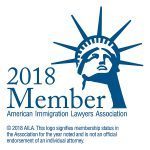.
DIPLOMATS, INTERNATIONAL ORGANISATIONS & NATO OFFICIALS
The Diplomatic Visas category is a highly specialised and quite exclusive area of immigration law. RMBII has a special passion for practicing it and providing quality services. This is because Robert is a former diplomat with the U.S. government and now a retired United Nations diplomat. He has been posted, worked and lived in over 15 countries for 20 years. Therefore, Robert is quite familiar with and sensitive to the ins and outs of the immigration difficulties and nuances. These issues usually revolve around establishing, organizing and managing a diplomatic life for one’s self and family (and personal staff). As a result, Robert is especially passionate and diligent in providing his clients with the best possible legal advice and services.
Diplomatic Visas are for diplomats and officials of foreign governments, representatives of international organizations, and staff of the North Atlantic Treaty Organization (NATO) in the U.S. There are also sub-classes of these visas available to immediate family and personal/attending staff. Understandably, most nations’ ministry of foreign affaires, and international organisations’ protocol/passport offices, arrange for their own staffs’ diplomatic visas needs.
Aside from assisting in the primary diplomatic visa application process when needed, there are certain circumstances when diplomats’ or international staff’s US immigration needs are not addressed by their own governments or organisations. This is where we step in to assist, and develop strategies and solutions that meet our client’s unique immigration needs concerning:
- Immigration applications for work authorisation;
- Change of status or adjustments of status from a diplomatic status to another nonimmigrant status (i.e., student visa or an H1B visa).
- Navigation through the complex additional US Government security process (U.S. Security Advisory Opinions (SAO) ) generally required of diplomatic visa holders
Typically we assist with such derivative issues not only for the primary “diplomatic visa” holder but also their family and personal staff. In this visa category, RMBII shines and finds our clients the best pathway to realising their objectives and goals.
U.S. Security Advisory Opinions
U.S. Security Advisory Opinions (SAO) often become a problem for diplomats prior to obtaining a visa. SAO’s are based on the the Foreign Affairs Manual subsection 212(a) on inadmissibility. There are about 10 types of SAOs and they have been named after various animals and 2 legendary animals, and have a bearing on the classes and sub-classes of Diplomatic visas.
Such ‘speed bumps’ and blocks occur when the respective U.S. Consulate in the diplomat’s country raises concerns. And such concerns may trigger a SAO under the following circumstances:
- the applicant’s name is flagged in a CLASS;
- an applicant received an unfavorable SAO in the past;
- the applicant is a national of a country that is not recognized by the United States, or with which the United States does not maintain diplomatic relations;
- the U.S. interviewing U.S. consular officer has knowledge or a reasonable ground to believe that the applicant is ineligible for admission to the U.S. because of national security concerns (for example, the consular officer believes that the applicant might be involved in the transfer of sensitive technology designated by the Department of State (DOS)’s Technology Alert List (TAL);
- the applicant is a national or employee of a State Sponsor of Terrorism; and
- the U.S. government may not be on good terms with the applicant’s own
CLASSES & SUB-CLASSES OF DIPLOMATIC VISAS
A VISAS
The “A” Visa is assigned to diplomats and other foreign officials who perform duties on behalf of their government in the U.S. Such individuals and their immediate family members must obtain an A-1 or A-2 visa prior to entry into the U.S.:
- A-1 Status – for ambassadors, public ministers, or career diplomatic or consular officers. Immediate relatives of individuals holding these positions can also qualify for A-1 status;
- A-2 Status – is based on reciprocity and granted to other officials and employees who have been accredited by a foreign government and who are accepted by the Secretary of State. Members of the immediate families of these officials and employees also receive A-2 visas;
- A-3 Status – for attendants, servants, and personal employees of A-1 and A-2 visa holders.
G VISAS
The “G” Visa is assigned to those working for designated international organization, such as the World Trade Organization, IMF/World Bank or the United Nations. As a result, the G visa is further subdivided into five sub-categories:
- G-l Status – for the principal resident representative to a permanent mission and to his or her immediate family members and staff. G-1 visas are designated for members of a permanent mission of a recognized government;
- G-2 Status – for the representatives of recognized governments and their immediate families who are traveling to the United States temporarily to attend meetings of a recognized international organization;
- G-3 Status – for representatives of non-recognized or non-member governments and to members of their immediate families to allow them to attend temporary meetings of recognized international organizations.
- G-4 Status – for officers and employees, of any rank, of international organizations, and their immediate family members. Staff of designated international organizations not assigned in the United States may be accorded G-4 classification if they intend to transit the United States.
- G-5 Status – for attendants, domestic staff, and personal employees of G-1 through G-4 visa status holders.
NATO VISAS
The NATO Visa – assigned to staff of the North Atlantic Treaty Organisation (NATO). NATO visas allow for attendants, domestic staff and personal employees of the NATO visa holder to obtain a NATO-7 visa.
CONTACT US







